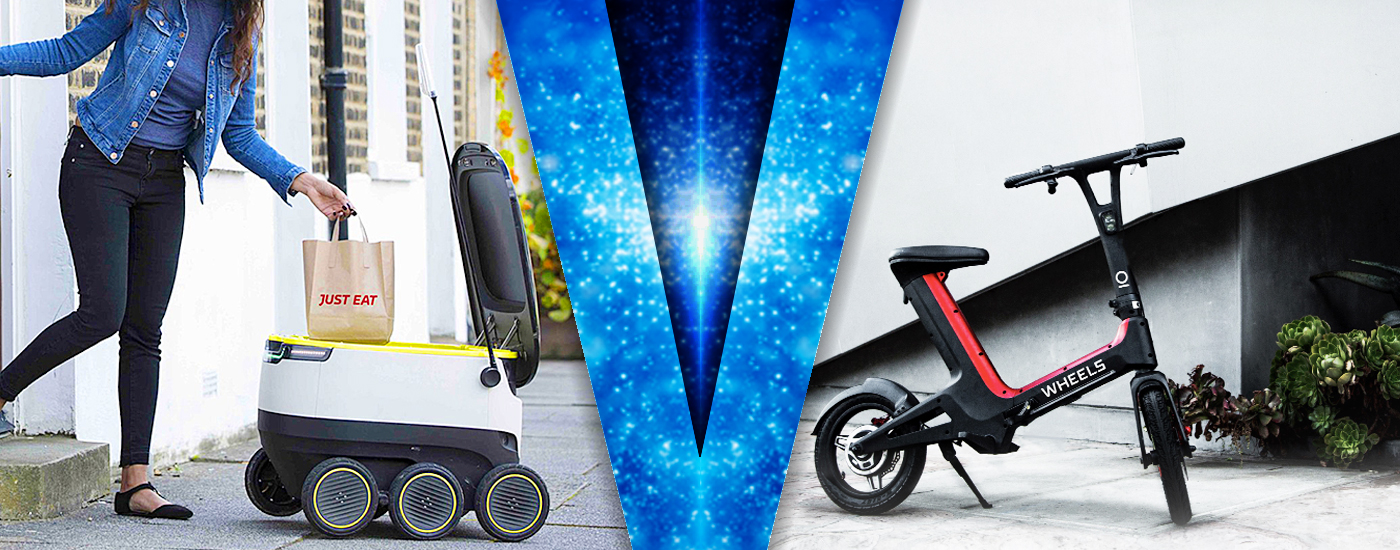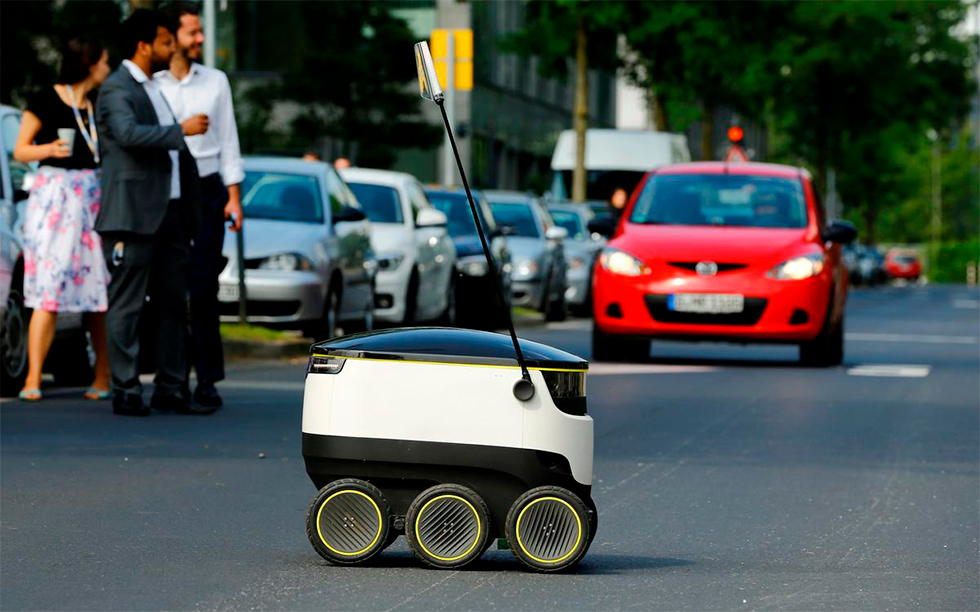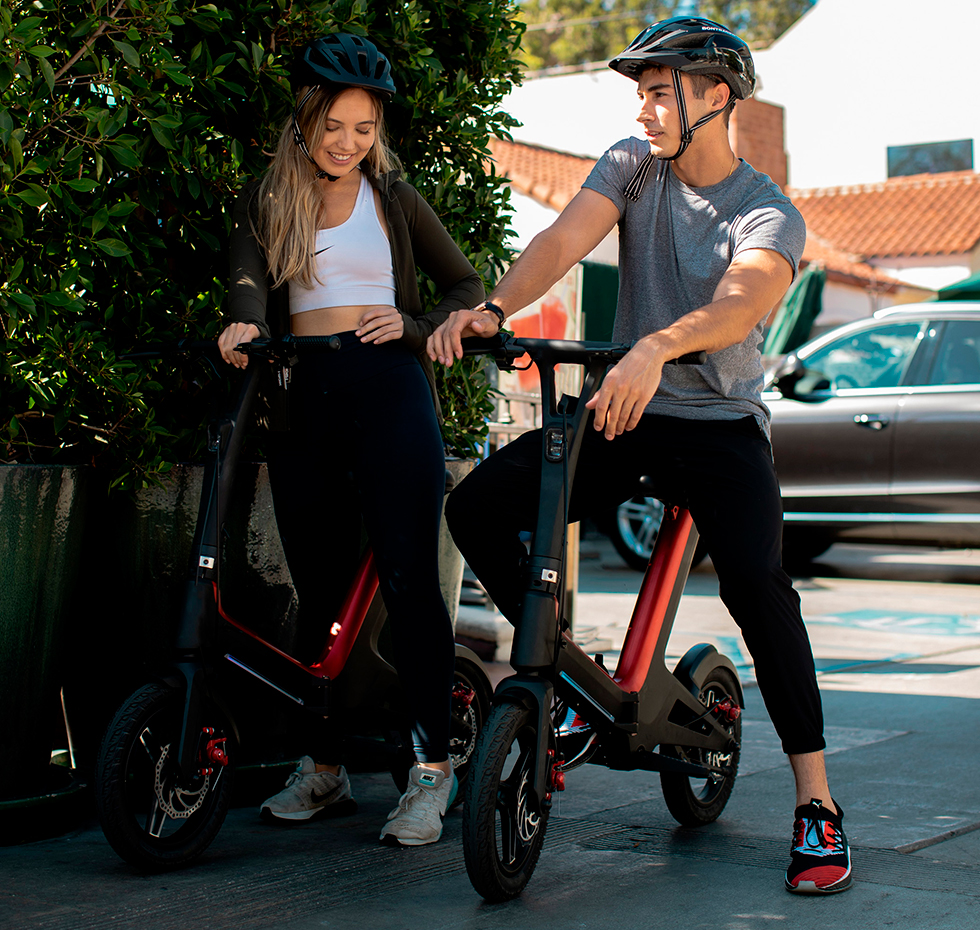[Corporate Report] TDK delves into ventures in the spotlight
Starship Technologies develops home delivery robots based on autonomous driving
The first investment destination of TDK Ventures was Starship Technologies, which has developed home delivery robots based on autonomous driving technologies. Starship Technologies' unmanned delivery robots autonomously deliver items purchased online after the goods arrive at delivery centers. Users can control delivery time, etc. using a single smartphone application, attracting attention around the world as state-of-the-art robots. Up to now, these robots have been tested in more than 100 cities worldwide. Commercial delivery services started in London, UK in April 2018 and at George Mason University in the USA in January 2019 and has now completed hundreds of trials in nine U.S. states, and over 20 countries internationally. Starship professes that its robots have crossed 4 million streets and delivered over 6,000 pizzas, 7,000 gallons of milk, 8,000 coffees, 9,000 sushi rolls, 15,000 bananas, and 3,700 diapers. It’s anticipated that the autonomous delivery robots market will be worth $34 billion by 2024, up from $11.9 billion in 2018.
The range of activities of the autonomous robots equipped with artificial intelligence (AI) is increasingly expanding in indoor spaces, such as stores, hotels, offices, and factories. Yet, there are many challenges to overcome, including legislation, specifically in situations where they need to move and work among pedestrians and cars. In these circumstances, the outdoor use of Starship Technologies’ unmanned delivery robots is a pioneering effort for a future autonomous robot society.
Starship Technologies' unmanned delivery robots make use of TDK's electronic components, and which will also be introduced at the TDK booth in the world’s largest exhibition CES in January 2020. TDK aims to apply know-how on automated driving and control technologies acquired through its investment in Starship Technologies to develop key devices in the future autonomous driving society.
Wheels develops electric bikes, the new trend of micromobility
The second investment destination was Wheels Labs which develops and promotes the use of electric bikes in the U.S. Presently, Europe and the U.S. are seeing an increase in the share service of electric vehicles. Wheels is offering a share service for bikes that do not need pedaling, successfully attracting attention mainly in Los Angeles. Being an electric bike, it is much more comfortable and safer than the conventional electric scooters, due to their seat design, thicker wheels, and lower center of gravity. Other features include long life due to removable batteries and replaceable parts. By downloading the special app and entering a mobile phone number, the electric bikes can be hired through payment by credit card.
Vehicles smaller than cars such as electric scooters, electric bikes, and senior cars (electric carts) are called micromobilities. Currently, efforts to integrate all transportation means other than personal cars into one mobility service (MaaS: Mobility as a Service*1) by building a cloud system for traffic information and related services while using information and communication technology (ICT) are underway globally. The micromobility share service plays an important role in MaaS and is thought to be an effective means of transportation for the “last mile.” With investment in Wheels, TDK aims to contribute to the development of the next-generation mobility society including MaaS by applying technologies, trends, and know-how related to the micromobility industry.
“These first two investments in micro-mobility are very complementary. Starship Technologies is about moving things within 3 miles or so, and Wheels is about moving people within 3 miles or so” said Nicolas Sauvage, Managing Director at TDK Ventures. “With this inside view across the spectrum of the micro-mobility industry, we’ll be able to better identify new market and technology trends early, including changing regulations as they happen, so we can apply our learnings to create solutions in TDK’s roadmap that are intersecting with these emerging and meaningful new applications in what we believe will become significant markets in the future.”
TDK Ventures will continue to invest in high-profile startups, contributing to the promotion of major market transformations such as “digital transformation” and “energy transformation.” TDK aims to discover new technology trends through ventures as fast as they can, reinforce the technology roadmap, and enter new markets.
TDK Ventures will continue to invest in promising startups that create synergistic effects with TDK's core technologies from two perspectives: materials technologies and applications. See the official website for details.
Terminology
- MaaS (Mobility as a Service): Once Maas is established, users will be able to search, book, and pay for multiple mobile services such as buses, trains, flights, and arrangements for hotels. MaaS has not been clearly defined by international organizations and may be interpreted differently depending on the country.



